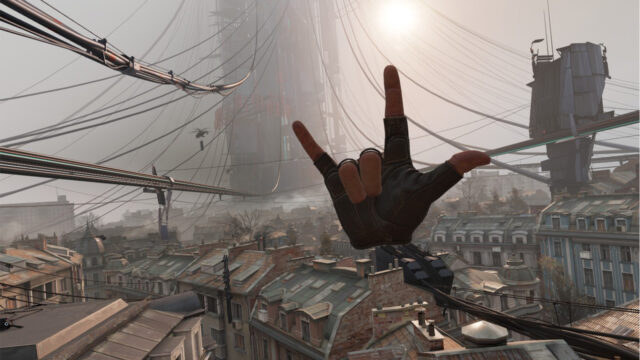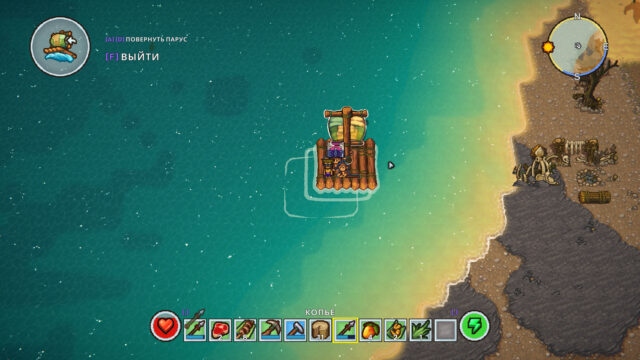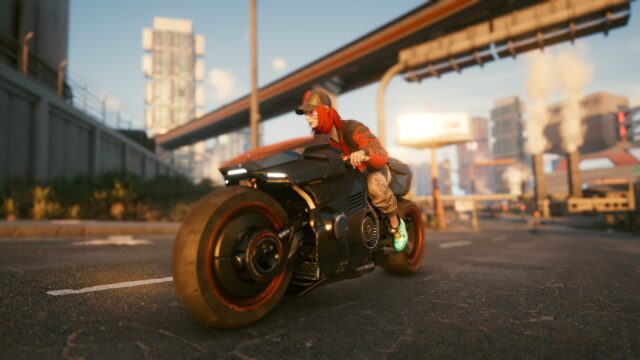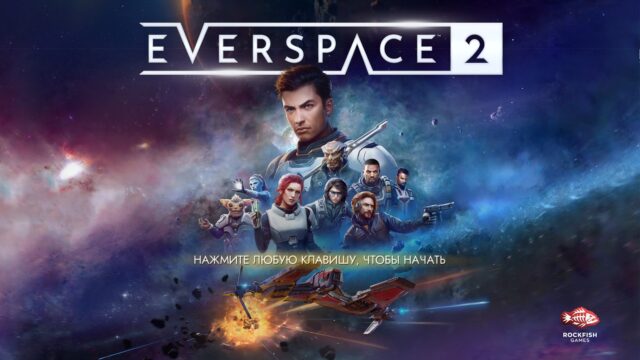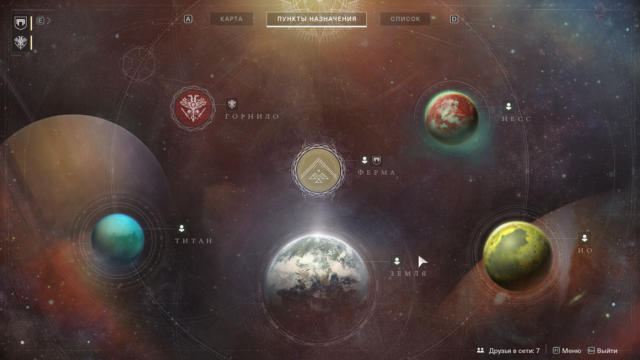Metal Gear Solid V: The Phantom Pain Review
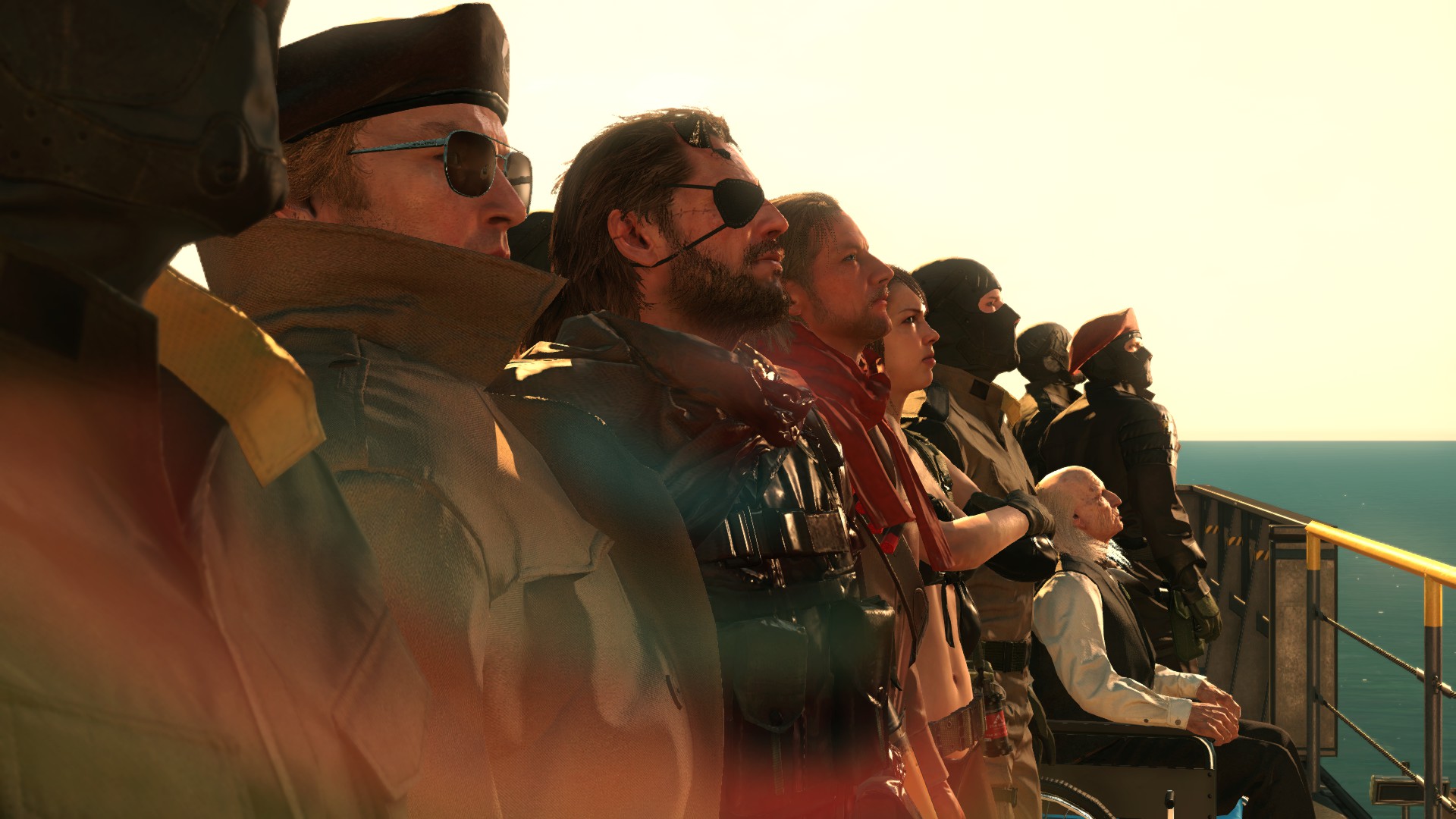
The main difficulty in trying to summarize the impressions of The Phantom Pain is that it is very difficult to do so briefly. You can’t get away with a general statement using words like “masterpiece,” “art,” or “Kojima genius” like before, because this time it’s not so clear-cut and simple. At least for one reason – MGS V is incredibly huge. In both a good and a bad sense.
It would seem that a good game can’t be too much, right? In the case of a game that raised a whole generation of stealth, cardboard boxes, and hour-long dialogues enthusiasts, the vast scale of the next installment in the series should be perceived as heavenly manna. Just imagine, Metal Gear Solid in an open world. With all its convoluted nonsense against the backdrop of real historical conflicts, with its trademark pathos and militaristic drama. With giant walking robots, after all!
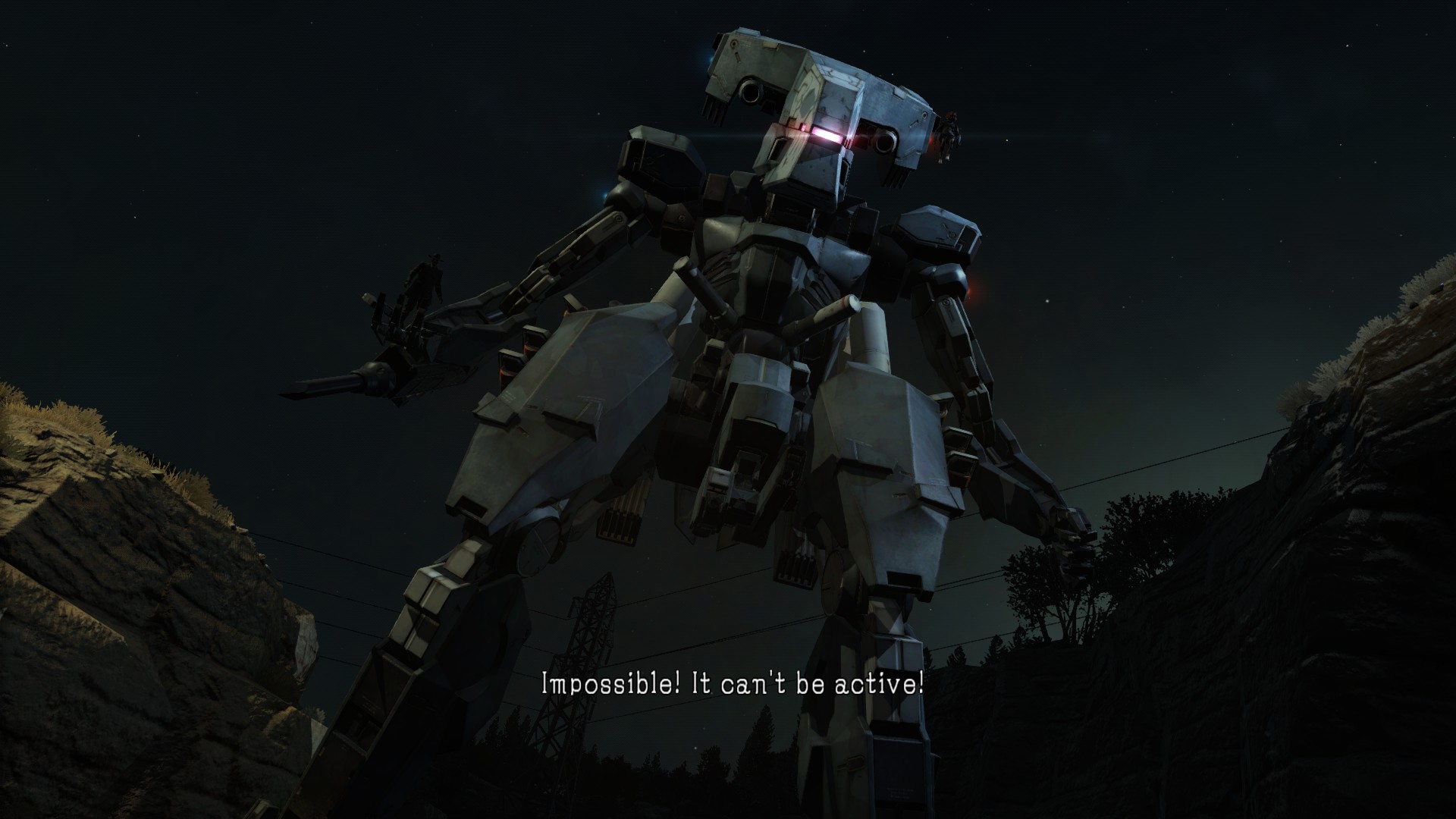
Two nails of this program. One in the palm of the other.
The sensations of venturing into vast spaces at first are truly amazing. Ground Zeroes I have already demonstrated the updated and westernized mechanics on my modest example – but one base cannot compare to a whole bunch of military objects of different calibers and purposes scattered across two gigantic maps of Afghanistan and Africa. They all function in free mode, and raids can be arranged on outposts at any time, simultaneously activating missions related to them. The familiar linearity disappears immediately after the spectacular prologue, and the game provides the right to independent choice not only of goals, but also of means to achieve them.
Despite the fact that a particular operation still limits the area on which we will have to work, there are definitely a dozen ways to pass through. Each task is a Ground Zeroes in miniature, where tactics are built from a multitude of nuances. Is it worth trying to slip past enemy patrols, or is it better to distract them by cutting off the electricity? Maybe just dive into the thick of events on a jeep and shoot the dissatisfied? In this case, it is necessary to cut off all communication channels with the headquarters in advance, otherwise the reinforcement will not keep you waiting. In addition, the factors of the “sandbox” should be taken into account as a separate line in your plans: it will be unpleasant if a night raid lasts until dawn or a sudden dusty storm obscures the entire view.
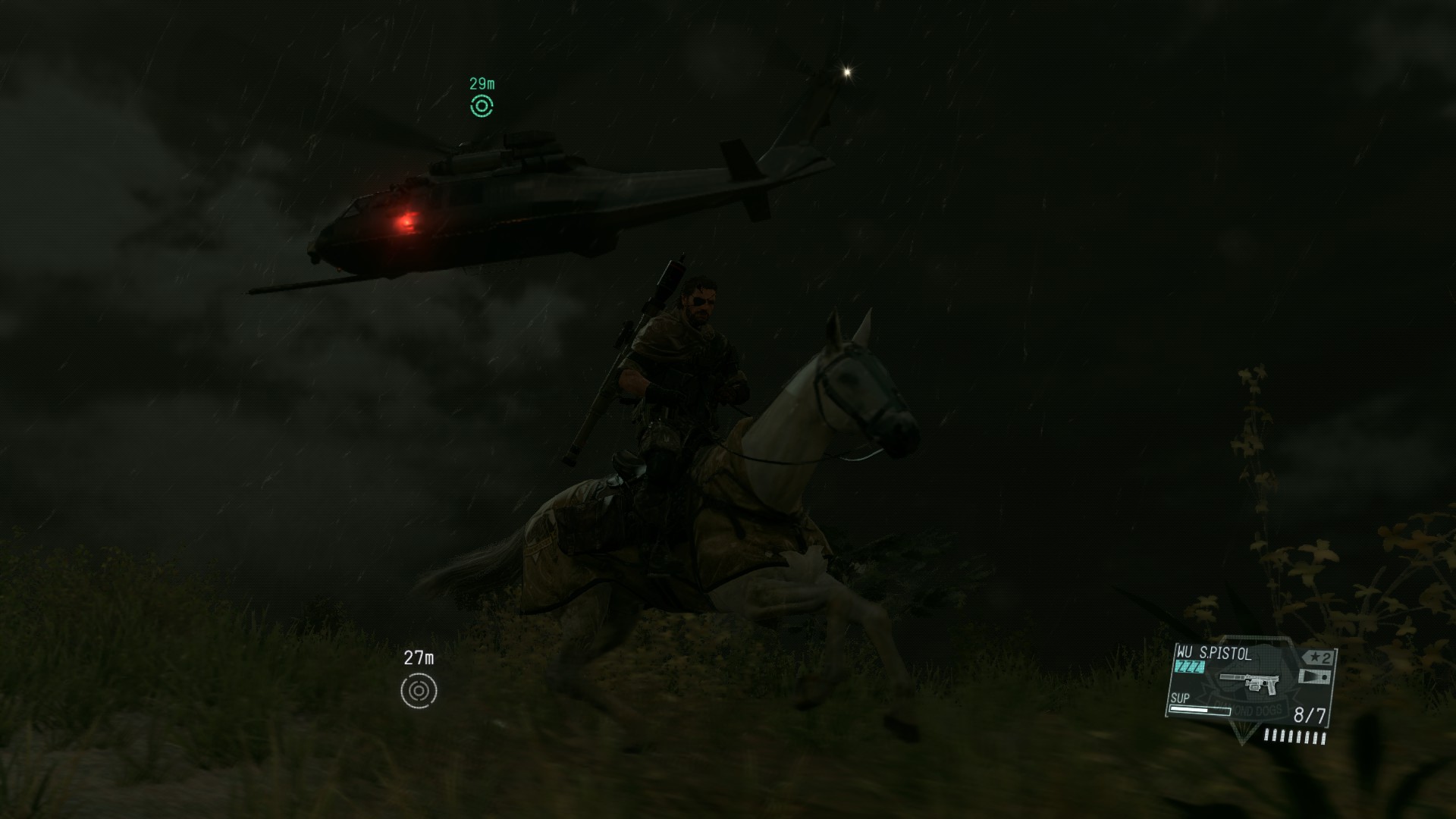
A helicopter is an indispensable companion: it can secure an evacuation zone and extract from a hot spot.
Of course, a well-thought-out strategy is only half the battle. Without equipment, its implementation will not go far, and here The Phantom Pain tries to impress with its scale the most. Pistols, sniper and assault rifles, grenade launchers, machine guns, rocket launchers, sleep-inducing and stunning modifications – you can dig into the equipment menu until you’re blue in the face, only choosing your main weapon. And there are also various gadgets like pills for shaky hands and decoys with inflatable soldiers, smoke and fragmentation grenades, mines of all kinds, and so on. At first glance, it may seem that there is even too much entrusted arsenal.
Partly, however, it is true. The game hardly encourages the desire to try out all the tools, so most of the specimens remain dead weight. The only ones who benefit are the supporters of explosive Rambo-like behavior, who will try out the entire range of weapons for fun – while dedicated “Metal Gear” fans will stick to a reliable pistol with tranquilizers, using proven methods only when necessary. Personally, being somewhere in the middle, we never understood the significant difference between individual rifle models, and we didn’t use the infamous pills at all, just like the hyped-up phantom cigar for time rewinding.
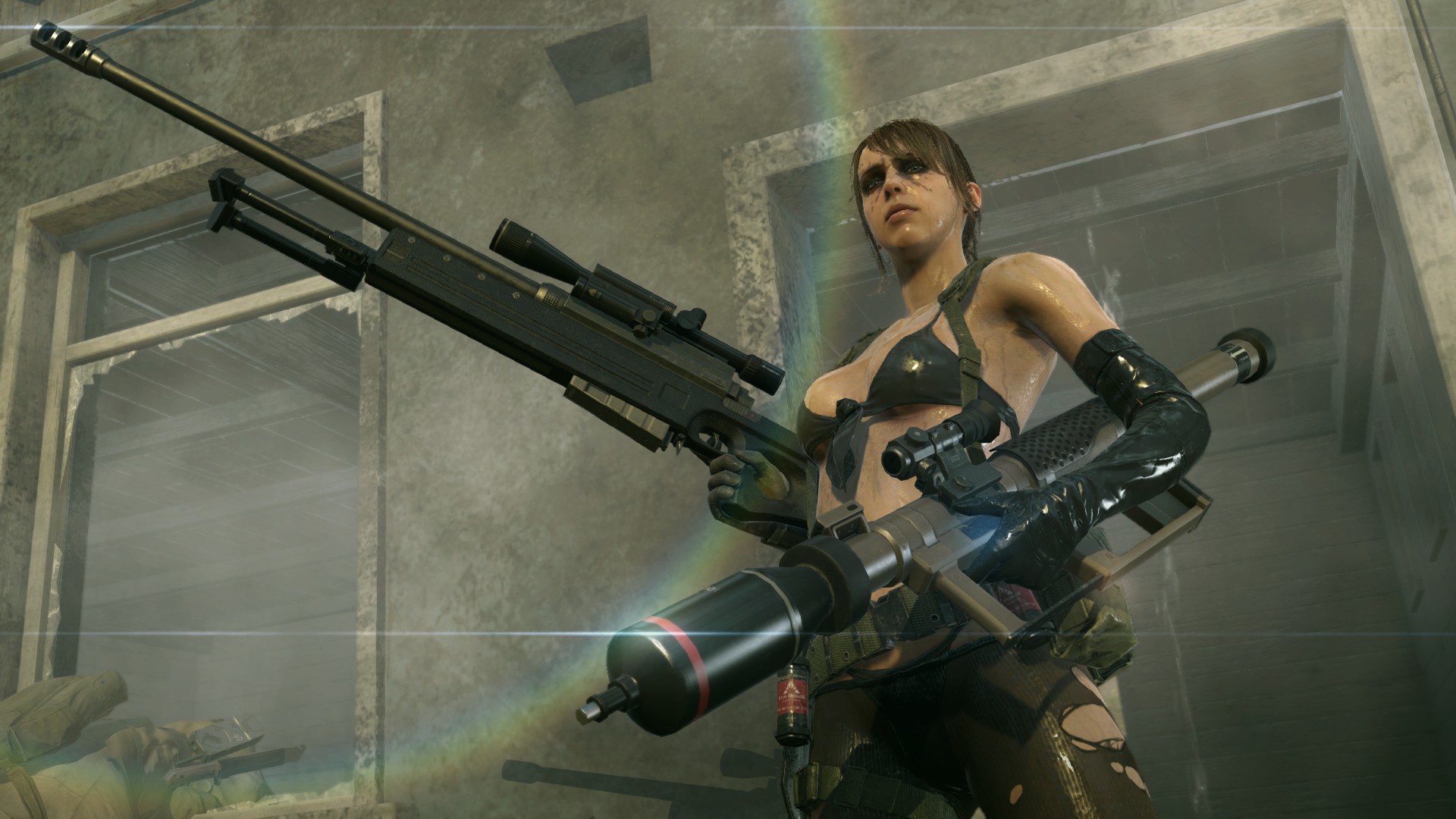
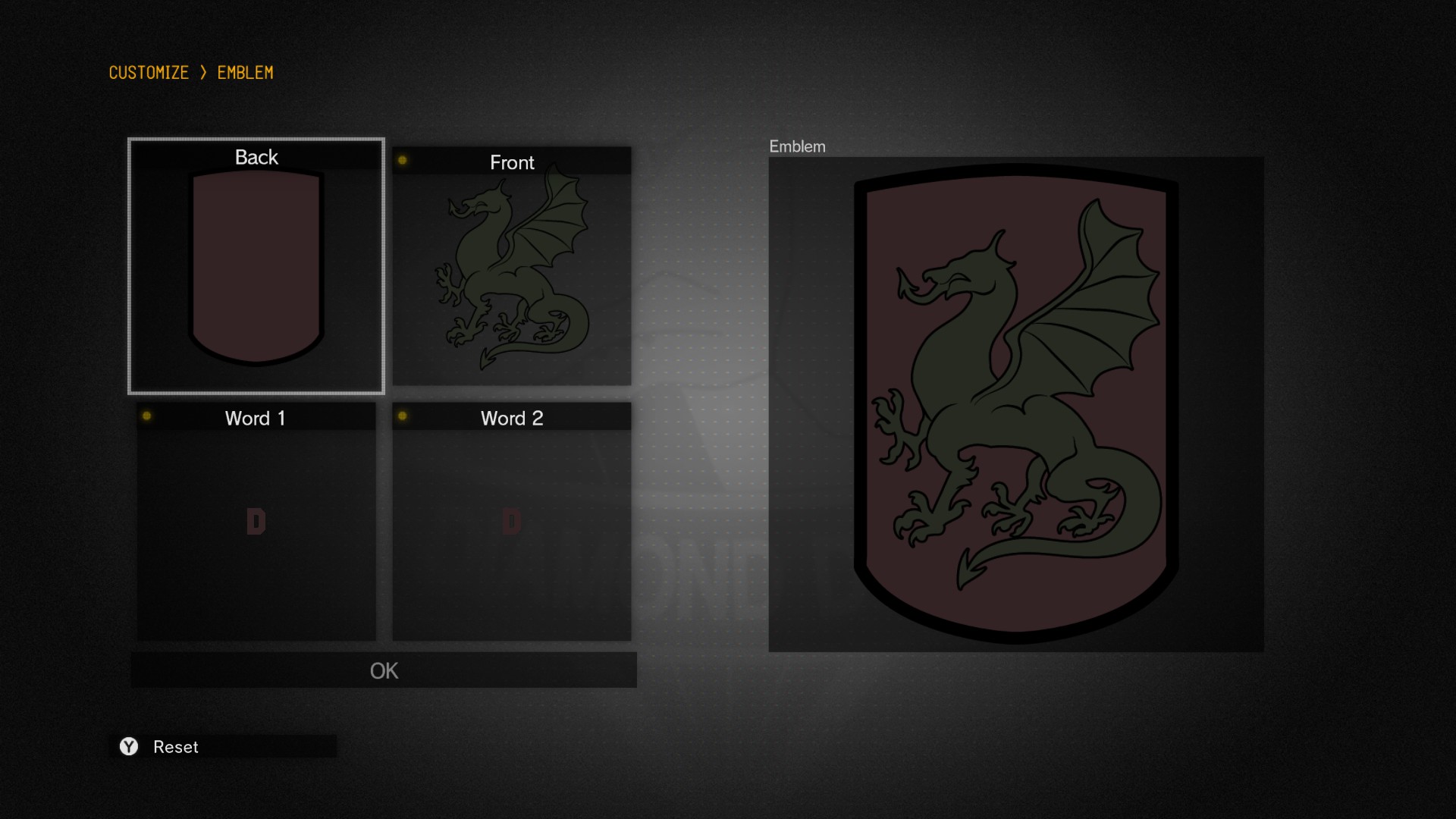
Customization here is off the charts – from the emblem of your company to camouflage on cars.
And you can also call one of your teammates for help. They significantly simplify life on the battlefield in various aspects: for example, the sniper girl Quiet provides fire support, the trained dog (wolf?) marks enemies and eventually learns to distract them with barking, and the horse… well, it’s just a horse – a means of fast movement in the surroundings, which for some reason they taught to defecate on command.
Playing with companions is much more fun, but they do introduce some imbalance into the process. The dog’s sense of smell practically overwhelms the screen, already filled with cheaty arrows above the enemies’ heads, and Quiet, engrossed in cover, single-handedly takes out entire outposts. Interestingly, this does not affect the rating, so there is usually no reason to refuse the services of comrades.
Another spoonful of dirt in the barrel of mechanics is artificial intelligence. The soldiers, of course, diligently simulate meaningful interaction, but since Ground Zeroes, they have not recovered from the shock of transitioning to an open world and, as a result, still mistake darts flying at them for rats, often ignore the cries for help from their fellow soldiers, and swing their knives in the air in a sign of resistance. Such cases are not widespread and occur against the backdrop of very commendable work by electronic brains, and yet.
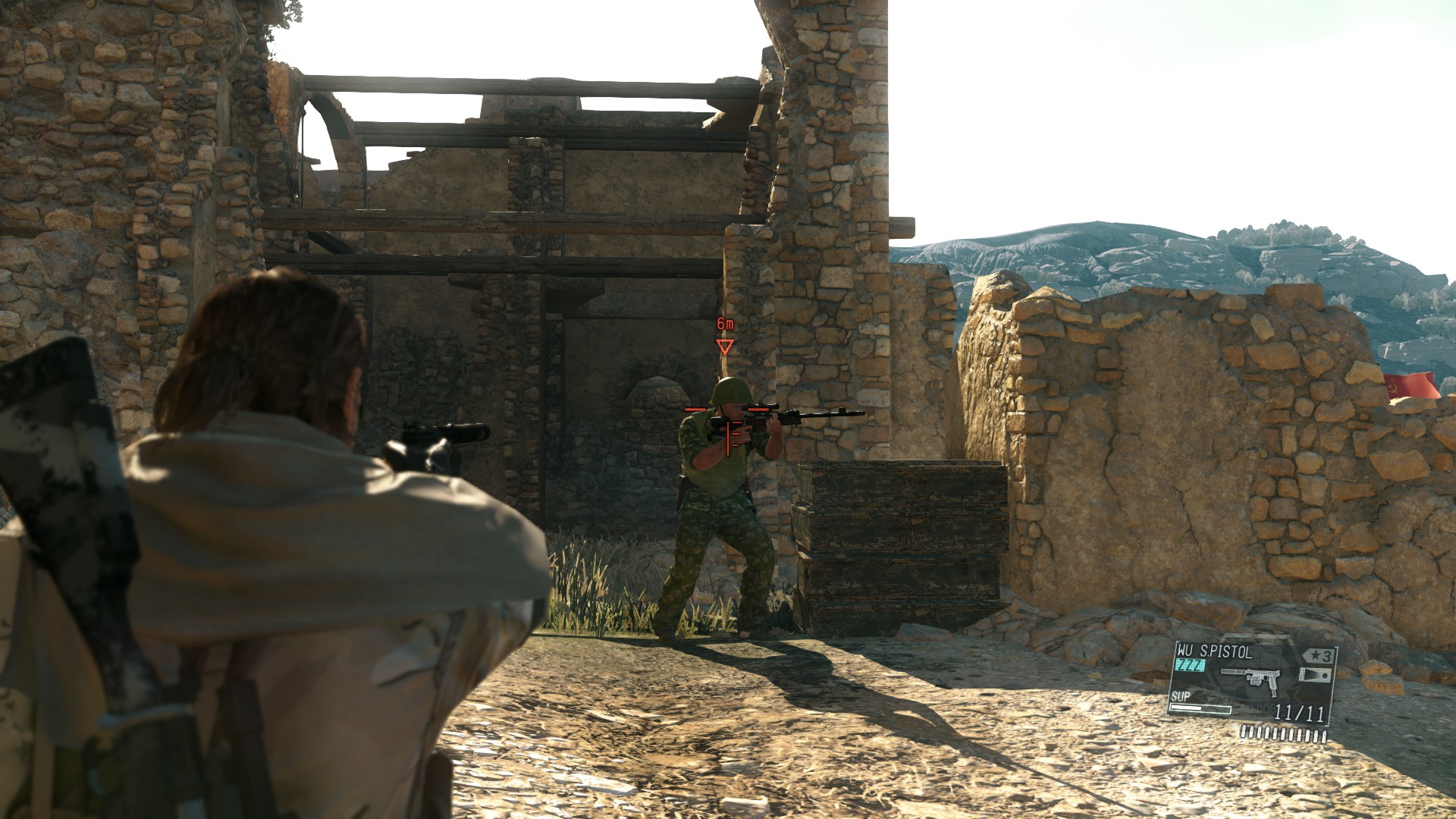
Afghan draw. In a second, the sniper will drop his weapon as if caught off guard, even though we were approaching him quite noisily.
Even with its flaws, all of the above makes the gameplay engaging and diverse regardless of the play style. The same wide range of possibilities is open for both stealthy approaches and loud action – in terms of gameplay, you can do anything, if not more.
But the intoxicating freedom actually distracts from the problems that the sandbox itself has brought. It has greatly affected the density of the content, something that MGS has never suffered from before. The sandbox has unfortunately had the most negative impact on the story. We won’t delve into all its intricacies, because it traditionally targets an audience of knowledgeable people who nod in understanding when the organization “Cipher” is mentioned and can distinguish Miller from Ocelot by their voices. They are already aware that The Phantom Pain is entirely dedicated to the story of Big Boss, the legendary mercenary who spent nine years in a coma after an attack on his base. Now the base needs to be rebuilt, the soul seeks revenge, and the narrative requires adequate delivery.
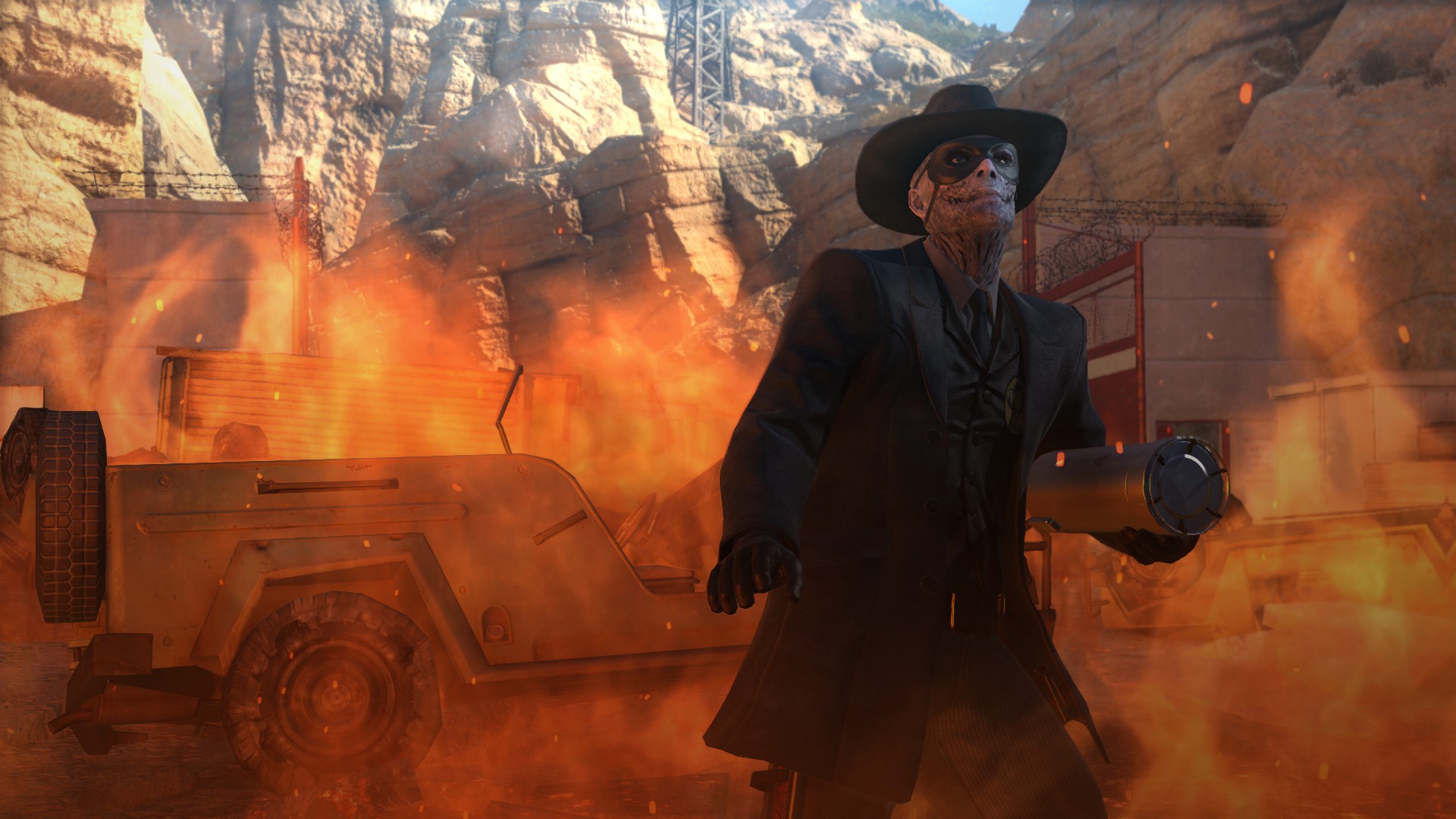
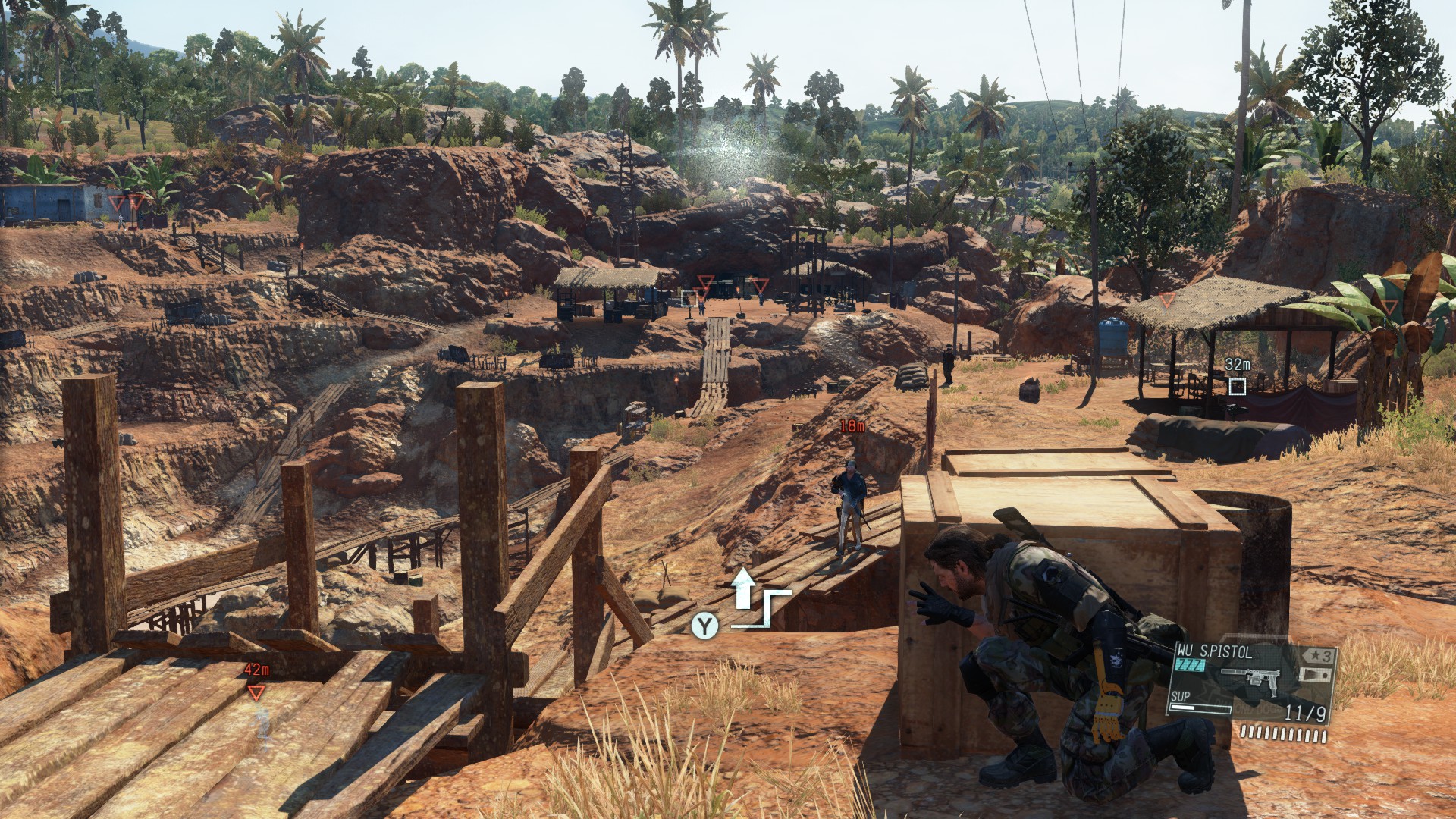
We have to find out about the fate of Big Boss and the company almost entirely on our own. Instead of lengthy conversations on the Codec, we now have audio diaries, which essentially hold the entire plot together. Only from the regularly replenished collection of tapes can we fully understand the motives of most characters, their relationships, and generally build a coherent picture of what is happening. What is beyond the recordings is just a skeleton for those who are used to galloping across Europe.
The videos have become terrifyingly short and carry the minimum amount of information to keep the player informed of key changes in the situation. Story missions are often loaded with meaning almost as much as secondary tasks. The usefulness of the content sometimes comes so close to zero that it becomes funny: saving a completely incomprehensible hostage and receiving a thirty-second cutscene without a single word spoken as a reward is considered normal in The Phantom Pain.
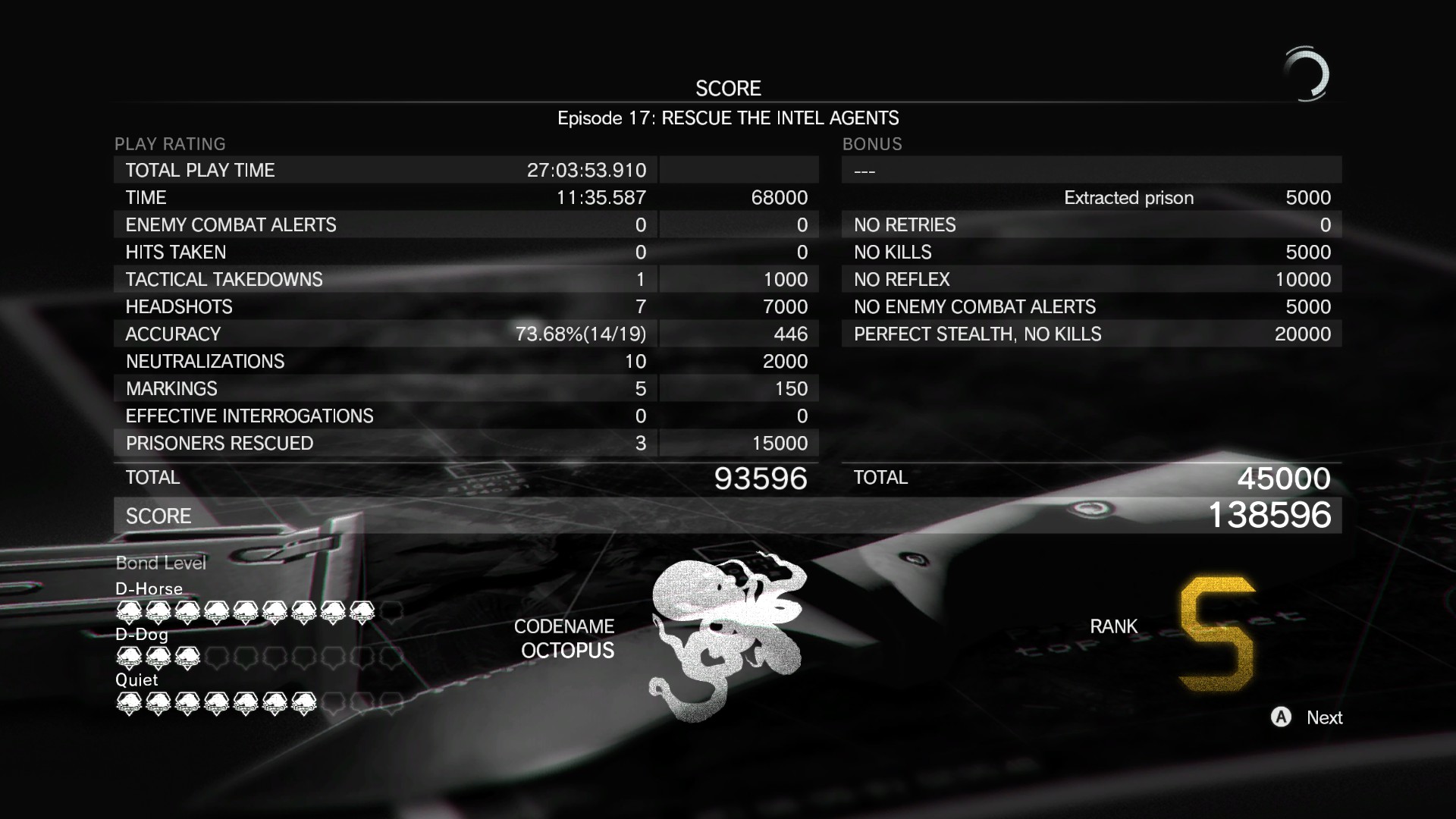
And did you think that no one would appreciate your achievements?
But if you delve into the depths and listen to the recordings until you’re tired, the extensive background of the real MGS will reveal itself. Almost every little significant detail is explained and clarified, our reality is interpreted with impeccable persuasiveness for artistic purposes, and behind the external incongruity of the setting, as usual, serious questions are hidden.
Truth be told, not all of them ultimately live up to the game. You expect the final statement in the series to reveal mind-blowing revelations and provide a worthy conclusion to the story cycle – but MGS V only manages to bridge the gap between Big Boss’s storyline and the beginning of Solid Snake’s epic. The ending doesn’t provide the satisfaction it should, and there’s no need to speculate about the reasons: it’s likely due to well-known disagreements between studios, resulting in a rushed and incomplete epilogue. While hints of the planned third chapter are slowly being uncovered in the game files, owners of the collector’s edition are sharing their experiences. with a video clip of the sketches of the last mission, where a significant portion of facts is still brought together. In its current form, however, the preceding scene titles evoke a creepy melancholy. It shouldn’t be like this, not like this.
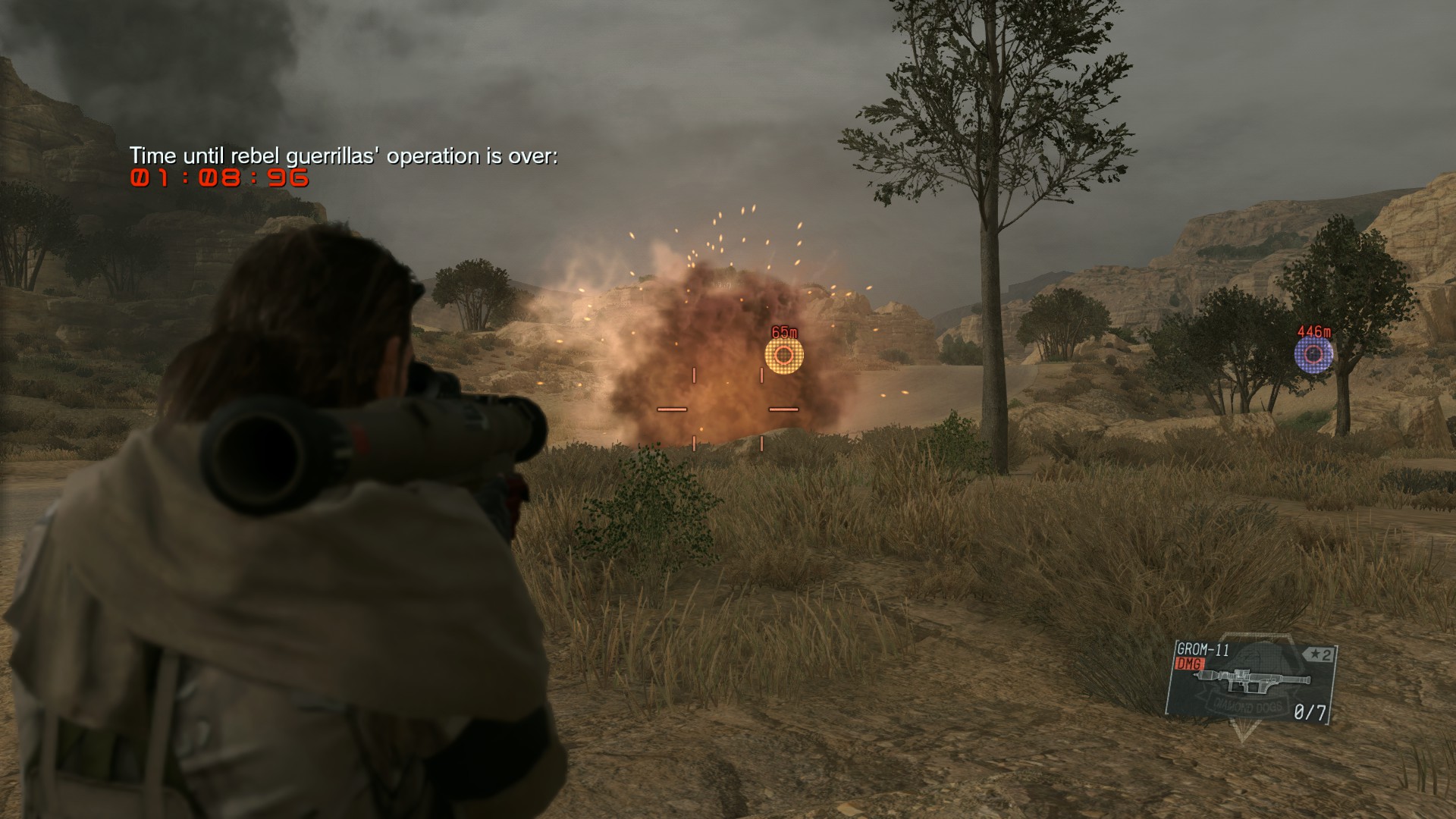
Returning to the open world, it is worth mentioning the repulsive elements of management, without which, for some reason, few similar games can do without. When restoring Mother Base, it is the duty of Big Boss to perform billions of monotonous routine tasks, the presence of which would not be so noticeable if the completion of most of them were not so critical for progress.
Firstly, personnel management, almost unchanged from the portable Peace Walker: we always have a certain number of employees with different characteristics under our command, according to which they need to be distributed among various departments for the development of various upgrades and equipment. In practice, it is even more boring than it sounds, but fortunately, one of the developers added an automatic distribution button.
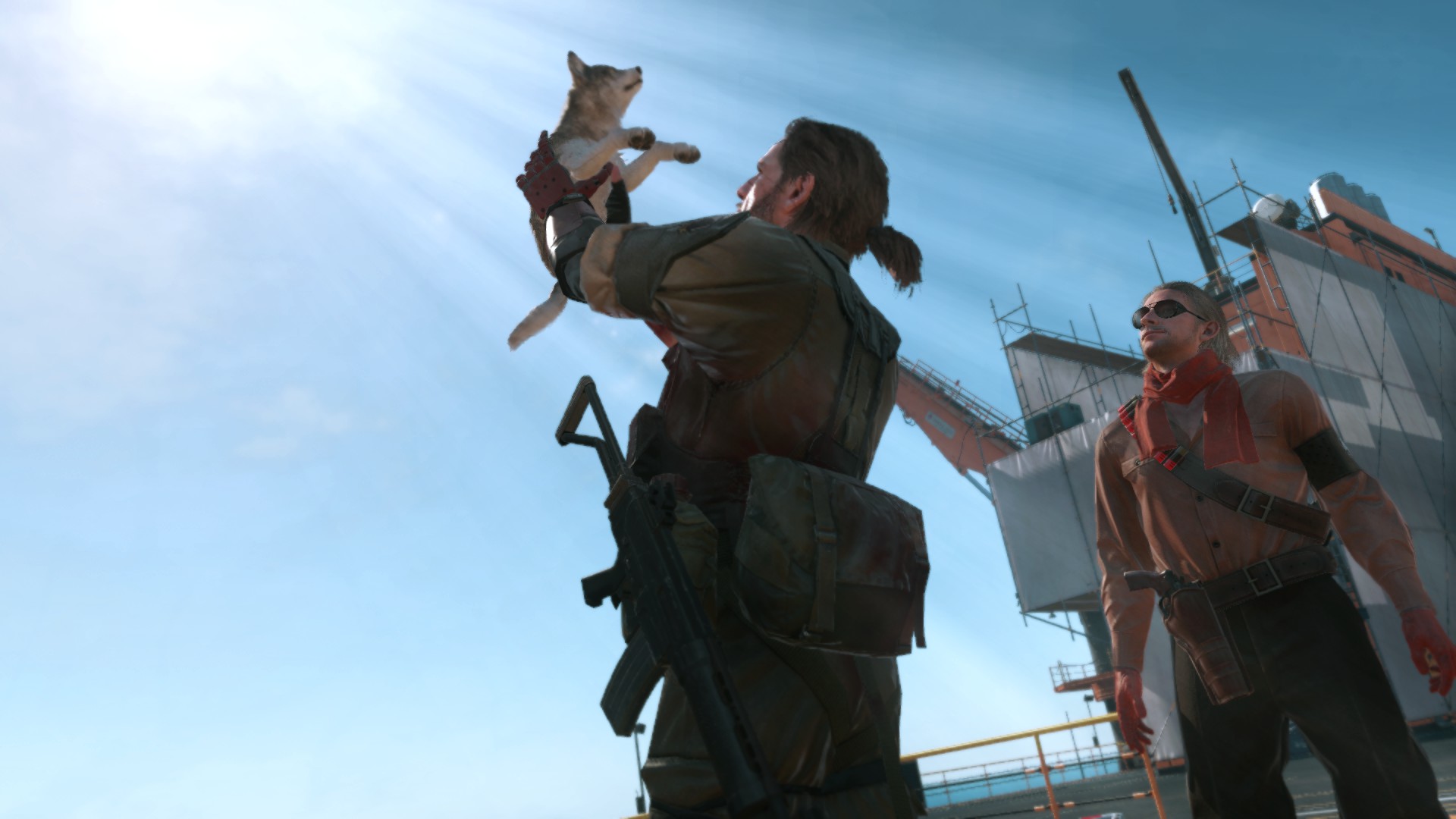
Our little dog is being introduced into the game with honors of Simba’s level.
Secondly, resource gathering. This includes absolutely everything, from flowers on the roadside to containers with metals, enemy vehicles, and even soldiers. Roughly speaking, after clearing another outpost, it is desirable to attach to everything that can be detached from the ground, a balloon and take it home. For the first couple of hours, this activity is perceived as “oh, the tank flew away” and doesn’t bother much, but then it simply becomes annoying and slows down the pace. If you don’t timely stock up on subordinates and don’t put the resource loot on autopilot, this entertainment can accompany you throughout the game.
Thirdly, silly assignments for personnel. Like in some Assassin’s Creed, here you need to send groups of your soldiers on missions that unfold off-screen and require nothing but time to wait for the results. Essentially, it’s just farming money for developing new upgrades and maintaining the base’s material condition. Again, it’s not very clear why this one-button routine had to become an element of gameplay.
Invasion of privacyIf you remember, The Phantom Pain was promised to have a full-fledged online mode. It’s not here yet, but there is a small multiplayer element that allows you to infiltrate other players’ territories and steal anything that is poorly guarded, valuable, or patrolling. So, this idea turned into a terrible imitation of VR trials, where the base owner sets up obstacles for you in advance, and you have to quickly grab what you need and escape through the farthest door without being noticed. It’s an incredibly foolish concept, the interest of which diminishes after the second attempt.
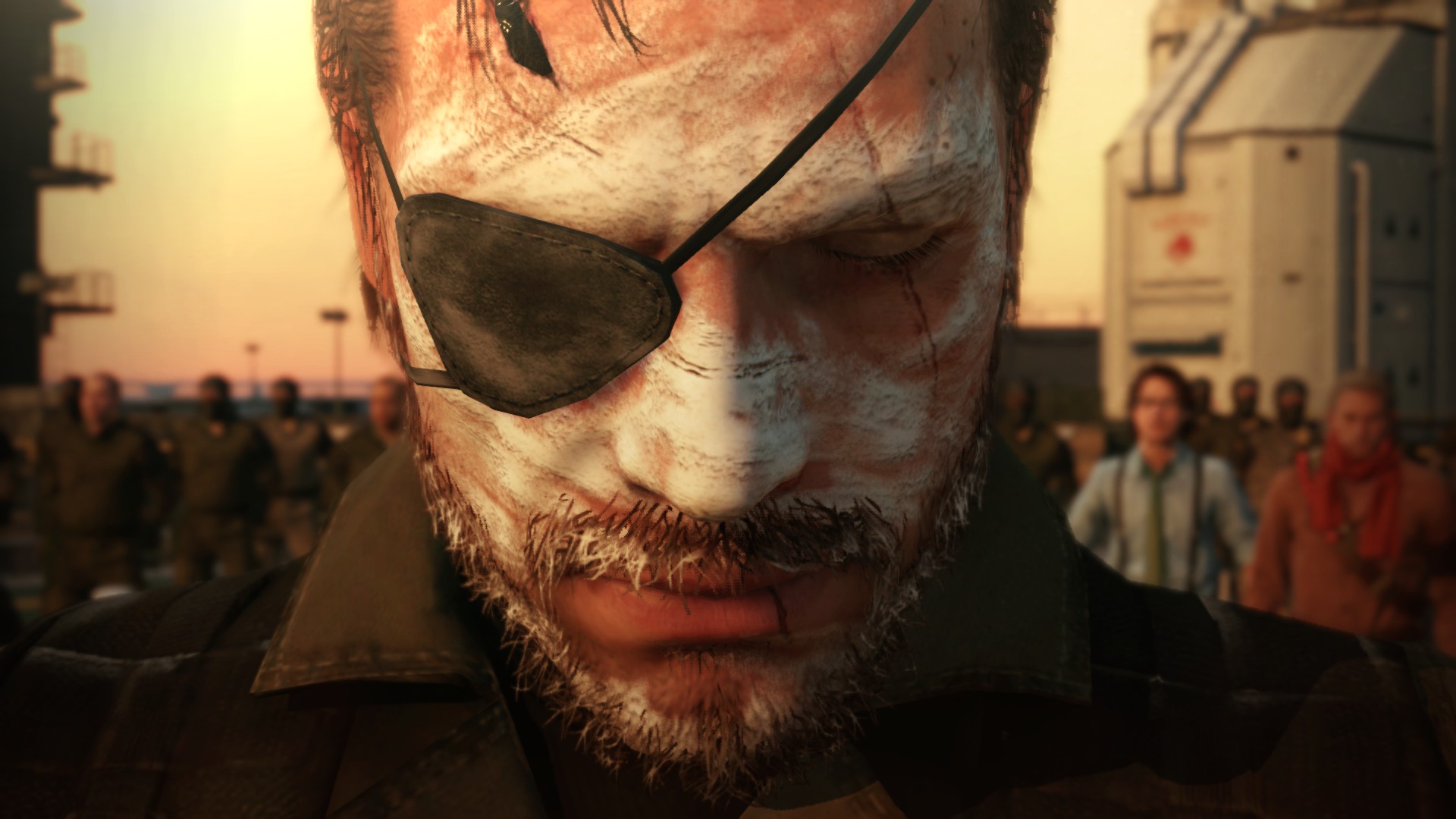
Well, and the last ailment is felt when exploring the world: besides military bases, even well-crafted ones, there is nothing in it – only kilometers of empty roads, where a gloomy convoy passes once in an eternity, and suitable wildlife for evacuation roams around. This imitation of life doesn’t work for long, so during the next marathon across all of Afghanistan, you pray to the heavens for a spontaneous event or any kind of activity. If Kojima saw his GTA like this, it turned out, to put it mildly, dead.
In the end, The Phantom Pain turned out to be a very, very controversial MGS, but at the same time a very, very good game. A multifaceted, complex stealth coexists with a heap of flaws, unexpected for such a renowned franchise, and yet not so terrible as to condemn the project completely – you get much more enjoyment from the process than it seems after everything that has been said.
The superiority of gameplay over the plot will probably seem like unacceptable madness to fans, but it’s not so bad. The catch is only that The Phantom Pain had every chance to become the unequivocal pinnacle of the series’ development, but it ended up being just its conclusion.
Share
Discuss
More Reviews
